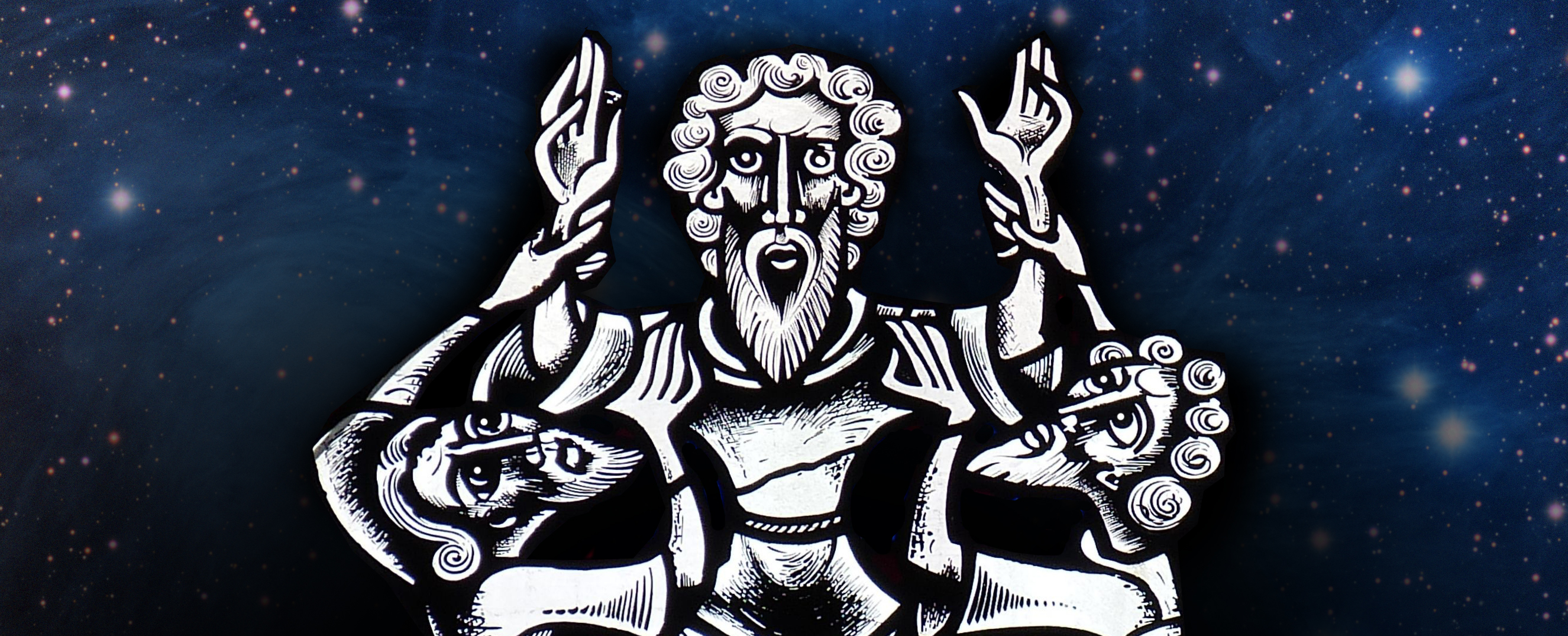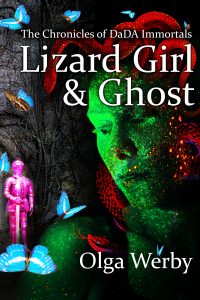
This month, I’ve jumped in head first into dark and cold waters of book marketing. I’ve learned a lot that was new to me but was probably obvious to any salesperson — other people (unlike me) like to read very specific genres of books. For example, if you are into a billionaire werewolf romances, you are NOT into werebear billionaire romances. Yes, people like what they like and there are many authors who are happy to write for very niche audiences. But I read lots of different things, fiction AND non-fiction. I read WWII spy novels AND science fiction. I like action adventure AND historical fantasy. My taste in books is as broad as the stories I like to write. But apparently, that’s not good for marketing. My books are all so different that I’ve been having a hard time zeroing in on a unifying theme for my stories. And then it hit me — I write Jewish Science Fiction…or Jew-ish Sci-Fi.
So what’s Jew-ish Sci-Fi? It’s a hero journey to save the world, where the hero belongs to a tight group of outsiders forced to make their way in the world by their talents and smarts and who are continuously being discriminated against by the society at large, but who take a long view on happiness even as they complain about the hardships along the way. This applies to ALL my books. This is what my stories ALL have in common.
By my definition, Jew-ish Sci-Fi has the following characteristics:
- Stranger in the Strange Land Theme — there are characters in the story who seem to be immersed into a social setting that is foreign to them. These individuals (humans and otherwise) could, in fact, be visitors from other lands. But they could also just be different: neurologically different (e.g., autistic); racially diverse (not just different from the main population, but different from ALL populations — a race of one via interesting commingling of genetics); culturally variant; linguistically divergent; medically challenged; economically outcast; more, less, or differently sensed (e.g., synesthesia); cognitively other; sexually outside the socially-defined standard norms; strangely motivated (strangely from the majority’s point of view)… I can continue on and on, but I think I got my point across. Jews write about people who are like themselves are outliers and segregated from the general population. Such individuals tend to be viewed with suspicion if not downright hostility by the general population. They also make excellent scapegoats — it’s so much easier to blame strangers, even for crimes they didn’t commit.
- Strong Foundation in Science or Cultural Myths — by virtue of being outside of the mainstream societies, Jews always took on professions that required additional education. When you ban people from owning agricultural lands and from hospitality and product-making industries, you force them to pick professions like banking, law, medicine…and of course writing and sciences. When the only way to succeed is through smarts, you push for education and studying…and studying…and studying. Jew-ish Sci-fi is full of brainiacs who are outsiders and strive to succeed in a society that’s somehow turned against them.
- Long Vision — Jews have to take the long view: if not us, then our children. Change is a gradual and hard-won process. You have to fight for what is right, even if the whole world is against you, even if it will take generations to achieve the goal. This means the journey is just as important as the destination. When you look at books like The Foundation by Isaac Asimov, this sense of the grand expanse of history is incredibly profound.
- Defining Membership in a Group — Having a long view means strong family values and commitment to one’s tribe are continuously encouraged, and children are indoctrinated into feeling a sense of belonging to a community that spans the globe and goes beyond political boundaries. As a people, Jews are incredibly diverse. This comes from leading a forced nomadic life for many millennia. Science fiction, more than any other fiction genre, focuses on humanity coming together as one people. Some sci-fi tropes even push the notion of Earthling to include other species. As long as Earth is our mother, we are one people — what’s more Jewish than that?
- The Chosen People — The idea that Jews are chosen by God to carry on despite all difficulties is very much part of the Jewish identity. All fiction is about the “chosen ones” — the ones who have to go above and beyond to save the world. Fantasy and Sci-Fi take this mythology on another level. Is there a fantasy and science fiction that’s not about a reluctant hero going off to save the realm?
- Suffering — Part of being Jewish is the suffering — being forced to save the world is hard work. I think it’s okay to complain about this.
You might think that’s not a thing, but consider that the most famous science fiction and fantasy writers you know are/were Jewish and they all have a LOT in common:
- Isaac Asimov — nothing to add here really.
- Stanley Kubrick — he ticks off all of Jew-ish Sci-Fi characteristics listed above.
- Alfred Bester — won the first Hugo Award!
- David Brin — among a vast collection of fiction, his Uplift series, focused on helping species reach their full cognitive potential, puts him squarely into Jew-ish Sci-Fi category.
- Avram Davidson — he started his career as writer by actually publishing fiction in Jewish magazines! He wove mythology and science and history to create humanistic science fiction.
- Harlan Ellison — he was the writer for the Star Trek episode “The City on the Edge of Forever.” Enough said.
- Russell Hoban — he wrote magical realism, poignant and painfully beautiful.
- Cyril M. Kornbluth — know by many pen names, including Cecil Corwin, S. D. Gottesman, Edward J. Bellin, Kenneth Falconer, Walter C. Davies, Simon Eisner, Jordan Park, Arthur Cooke, Paul Dennis Lavond, & Scott Mariner. He wrote about far future and even belonged to the Futurians.
- Robert Sheckley — wrote short stories (and for TV and novelization of TV serials). His plots were absurdist and strange — e.g., a man mistakenly treated by a machine intended for Martians. This is perfect Jew-ish Sci-Fi in short form.
- Benjamin Rosebaum — a Hugo, Nebula, BSFA, World Fantasy, Theodore Sturgeon Awards-winning author AND a computer programmer who also got a degree in religious studies.
- Harry Turtledove — Ph.D. in Byzantine history, wrote under multiple pseudonyms stories like Wereblood, King of the North, Into the Darkness…
- Neil Gaiman — Good Omens… I suggest reading some of the autism discussions based on this book/TV adaptation.
- Arkady and Boris Strugatsky — these brothers were featured in one of my novels, Coding Peter.
- Stanisław Lem — he was trained as a doctor (his Jewish mother is very proud). He is the author of Solaris.
- Lavie Tidhar — new to me, but Tor is talking about him!
- Hagar Yanai — same for this author…
- Stuart Rojstaczer — this man got on my list for his book The Mathematician’s Shiva. I classify this story squarely in Jew-ish Sci-Fi.
- Lev Grossman — The Magicians…
I can go on and on. Jews are well represented in literature. Now I’m not comparing myself these great authors, I’m just saying I write in their genre — Jew-ish Sci-Fi.
So I don’t write werebear romance stories. I write about unlikely heroes who have to go way outside their comfort zone to save not only their families and immediate communities but the whole world…universe! All my books are at some level about unrecognized abilities, about persevering through fear, about love above all.
If You Can’t Learn from History, Learn from the Future!
Humans seem to have a really hard time learning from their own mistakes. History is often forgotten, warnings from the past not heeded. But we do enjoy a good story or two. So how about learning from the future? Jew-ish Sci-Fi is a prophetic genre. Lot’s of people write in it. Lot’s of people enjoy reading it…even the ones who focus on werebears…
 For the next day, I’ve made one of my stories, Lizard Girl & Ghost, free as an e-book on Amazon. It’s a story of a dying child, a parent desperately trying to save his little girl, and a whole other reality of cyberworld, where avatars of the dead share space with those of the living. Get it today. It’s a very Jew-ish story…
For the next day, I’ve made one of my stories, Lizard Girl & Ghost, free as an e-book on Amazon. It’s a story of a dying child, a parent desperately trying to save his little girl, and a whole other reality of cyberworld, where avatars of the dead share space with those of the living. Get it today. It’s a very Jew-ish story…
And I would also like to share a link to an e-book promotion — a bunch us indie authors get together and put our books together to give our fans and readers a little something extra. These books are all in the Self-Published Fantasy Blog-Off 5 — a little friendly competition for the indie writers. Most of these are free on Kindle Unlimited until August 31st.
And one more thing… Another one of my short stories just became available for a quick read: Time Travel Suicide Therapy. Enjoy! Thank you for reading, and if you like a story, remember to leave a review.
For a bit of reference, just in case you didn’t get enough of Jewishness yet, check out this article in Encyclopidia.com on Jewish Science Fiction and its historical roots.
